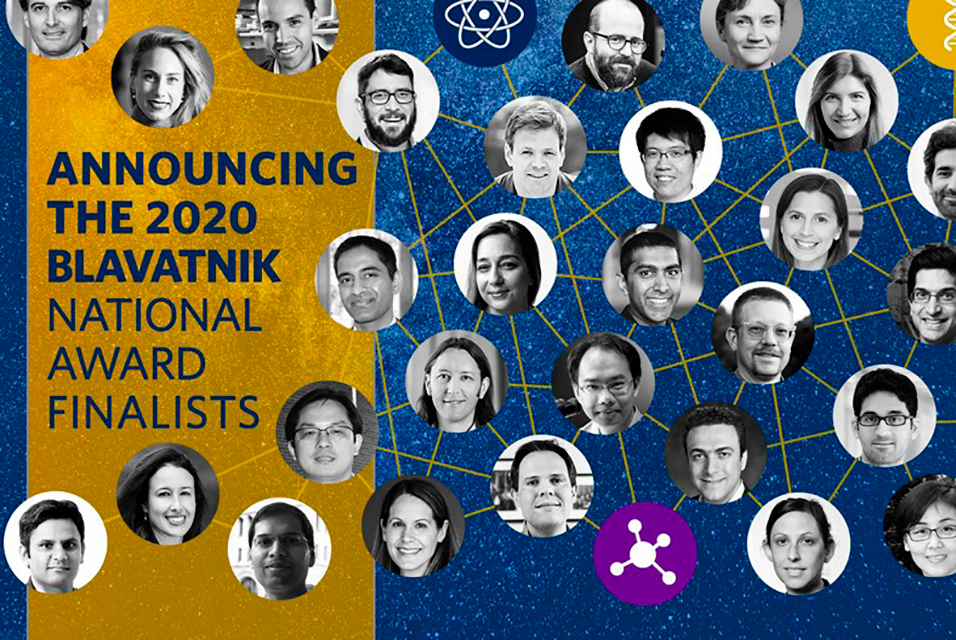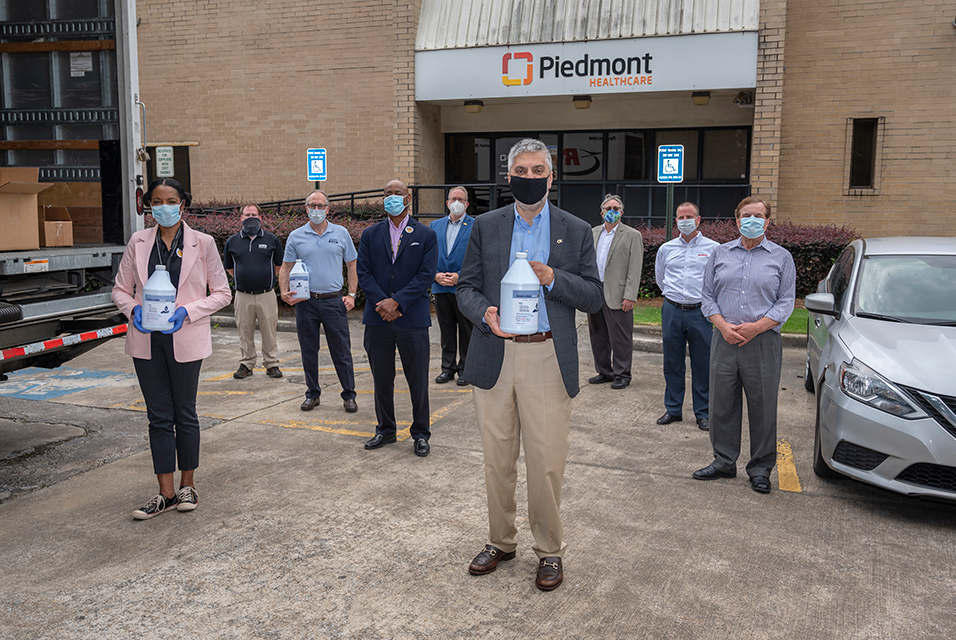NEW YORK, NY.- Four
Columbia faculty have been named one of 31 national finalists for the Blavatnik National Awards for Young Scientists, the world’s largest unrestricted prize for early-career scientists.
Cory Dean, professor of physics, Brian Metzger, associate professor of physics, Luis Campus, associate professor of chemistry, and Wei Min, professor of chemistry, will compete for three top spots as the 2020 Blavatnik National Laureates, to be announced July 22.
The finalists were selected from 305 nominations of outstanding researchers from 161 of the nation’s leading academic and research institutions. One laureate in each disciplinary category—chemistry, physical sciences and engineering, and life sciences—will receive $250,000 in unrestricted funds.
Now in its 14th year, the Blavatnik awards recognize the past accomplishments and future promise of the most talented faculty-rank scientists and engineers aged 42 years and younger at America's top academic and research institutions.
“These four outstanding scientists represent the breadth and quality of Columbia Science, said Robert Mawhinney, dean of the Division of Natural Sciences at Columbia. “With research interests ranging from the collisions of astrophysical objects, such as neutron stars, to using light to probe chemistry and biochemistry, to the synthesis of new nanoscale materials of relevance to drug delivery and electronics and the development of materials exhibiting novel quantum properties, they are leading their fields and provide inspiration and direction to the future scientists studying at Columbia.”
Cory Dean, professor of physics. Working with a unique class of two-dimensional materials called van der Waals (vdW) heterostructure materials—very thin materials made of single atomic layers stacked and held together by weak forces—Dean kicked off a revolution in experimental physics. His breakthrough techniques sparked a completely new field of study known as “twistronics.” His work has enabled the exploration of new areas in quantum physics, including superconductivity, topology and magnetism.
Brian Metzger, associate professor of physics. Setting out to investigate where gold came from, Metzger found the answer. The astrophysict's theoretical predictions correctly mapped the properties of visual flares accompanying binary neutron star mergers that produce gravitational-wave events. In so doing, Metzger made a remarkable scientific discovery: these binary mergers are the universe’s factories where heavy elements—like gold—are made.
Luis Campos, associate professor of chemistry. The polymer chemist has spearheaded the synthesis and development of new chromophores—unique molecular modules that interact with light—that possess advanced electrical properties. Use of these novel modules could significantly increase the conversion efficiency of next-generation solar cells, harnessing more energy from the sun. Beyond solar cells, Campos and his team are revolutionizing a broad spectrum of crucial technologies by focusing on the molecular design of novel functional materials to address important problems in materials chemistry.
Wei Min, professor of chemistry. Wei Min has made revolutionary advances in the imaging of chemical bonds. These novel techniques allow scientists to visualize small bio-molecules such as metabolites and pharmaceutical compounds, as well as to simultaneously visualize large numbers of molecules within living tissue. Going beyond conventional fluorescence microscopy, visualizing molecules in this way opens new applications in chemistry and biomedicine and even energy research.
Founded by the Blavatnik Family Foundation in 2013 and independently administered by the New York Academy of Sciences, the Blavatnik awards aim to support young scientists at a pivotal career juncture when money and visibility can catapult a scientist’s career, thereby accelerating the pace of scientific innovation and discovery.
“The world has never needed scientists more than right now,” said Len Blavatnik, founder and chairman of Access Industries, head of the Blavatnik Family Foundation and member of the President’s Council of the New York Academy of Sciences. “In these challenging times, the work of these impressive young scientists offers us hope. Their research will lead to solutions—new inventions, discoveries and ideas—that will endow society with the tools needed to surmount the difficult challenges our world currently is faced with. We are very proud to honor them.”
Due to the COVID-19 pandemic, the annual awards ceremony and gala dinner in honor of the national awards laureates and finalists typically held in September will be postponed to 2021. The 2020 honorees will be celebrated alongside the 2021 Blavatnik National Awards honorees, Sept. 27, 2021 at the American Museum of Natural History in New York.










